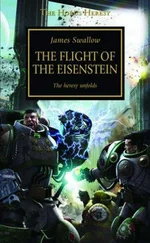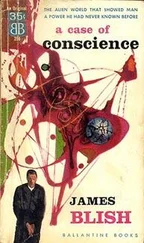James Blish - Cities in Flight
Здесь есть возможность читать онлайн «James Blish - Cities in Flight» весь текст электронной книги совершенно бесплатно (целиком полную версию без сокращений). В некоторых случаях можно слушать аудио, скачать через торрент в формате fb2 и присутствует краткое содержание. Жанр: Фантастика и фэнтези, на английском языке. Описание произведения, (предисловие) а так же отзывы посетителей доступны на портале библиотеки ЛибКат.
- Название:Cities in Flight
- Автор:
- Жанр:
- Год:неизвестен
- ISBN:нет данных
- Рейтинг книги:4 / 5. Голосов: 1
-
Избранное:Добавить в избранное
- Отзывы:
-
Ваша оценка:
- 80
- 1
- 2
- 3
- 4
- 5
Cities in Flight: краткое содержание, описание и аннотация
Предлагаем к чтению аннотацию, описание, краткое содержание или предисловие (зависит от того, что написал сам автор книги «Cities in Flight»). Если вы не нашли необходимую информацию о книге — напишите в комментариях, мы постараемся отыскать её.
Cities in Flight — читать онлайн бесплатно полную книгу (весь текст) целиком
Ниже представлен текст книги, разбитый по страницам. Система сохранения места последней прочитанной страницы, позволяет с удобством читать онлайн бесплатно книгу «Cities in Flight», без необходимости каждый раз заново искать на чём Вы остановились. Поставьте закладку, и сможете в любой момент перейти на страницу, на которой закончили чтение.
Интервал:
Закладка:

Paige swung his head abruptly and looked at Anne. Her face, a ghostly blur in the dying light of the shell, was turned raptly toward the window; she had been watching, too. He leaned forward and kissed her slightly parted lips, gently, forgetting all about Wagoner. After a frozen moment he could feel her mouth smiling against his, the smile which had astonished him so when he had seen it first, but softened, transformed, giving. The world went away for a while.
Then she touched his cheeks with her fingertips and sank back against the cushions; the Caddy swung sharply north off the park-way; and the spark of radiance which was the last Retmal image of the shell vanished into drifting purple blotches, like after-visions of the sun—or of Jupiter seen close-on. Anne had no way of knowing, of course, that he had been running away from her, toward the Proserpine station, when he had been cornered in this Caddy instead. Anne, Anne, I believe; help me in mine unbelief.
The Caddy was passed through the spaceport gates after a brief, whispered consultation between the chauffeur and the guards. Instead of driving directly for the Administration Building, however, it turned craftily to the left and ran along the inside of the wire fence, back toward the city and into the dark reaches of the emergency landing pits. It was not totally dark there, however; there was a pool of light on an apron some distance ahead, with a needle of glare pointing straight up from its center.
Paige leaned forward and peered through the double glass barrier —one pane between himself and the driver, the other between the driver and the world. The needle of light was a ship, but it was not one he recognized. It was a single-stage job: a ferry, designed to take them out no farther than to Satellite Vehicle One, where they would be transferred to a proper interplanetary vessel. But it was small, even for a ferry.
“How do you like her, Colonel?” Wagoner’s voice said, unexpectedly, from the black corner where he sat.
“All right,” Paige said. “She’s a little small, isn’t she?”
Wagoner chuckled. “Pretty damn small,” he said, and fell silent again. Alarmed, Paige began to wonder if the senator was feeling entirely well. He turned to look at Anne, but he could not even see her face now. He groped for her hand; she responded with a feverish, rigid grip.
The Caddy shot abruptly from the fence. It bore down on the pool of light. Paige could see several marines standing on the apron at the tail of the ship. Absurdly, the vessel looked even smaller as it came closer.
“All right,” Wagoner said. “Out of here, both of you. We’ll be taking off in ten minutes. The crewmen will show you your quarters.”
“Crewmen?” Paige said. “Senator, that ship won’t hold more than four people, and one of them has to be the tube-man. That leaves nobody to pilot her but me.”
“Not this trip,” Wagoner said, following him out of the car. “We’re only passengers, you and I and Miss Abbott, and of course the marines. The Per Aspera has a separate crew of five. Let’s not waste time, please.”
It was impossible. On the cleats, Paige felt as though he were trying to climb into a .22 calibre long-rifle cartridge. To get ten people into this tiny shell, you’d have to turn them into some sort of human concentrate and pour them, like powdered coffee.
Nevertheless, one of the marines met him in the airlock and within another minute he was strapping himself down inside a windowless cabin as big as any he’d ever seen on board a standard interplanetary vessel—far bigger than any ferry could accommodate. The intercom box at the head of his hammock was already calling the clearance routine.
“Dog down and make all fast. Airlock will cycle in one minute.”
What had happened to Anne? She had come up the cleats after him, of that he was sure—
“All fast. Take-off in one minute. Passengers ’ware G’s.”
—but he’d been hustled down to this nonsensical cabin too fast to look back. There was something very wrong. Was Wagoner—
‘Thirty seconds. ’Ware G’s.”
—making some sort of a getaway? But from what? And why did he want to take Paige and Anne with him? As hostages they were—
“Twenty seconds.”
—worthless, since they were of no value to the government, had no money, knew nothing damning about Wagoner—
“Fifteen seconds.”
But wait a minute. Anne knew something about Wagoner, or thought she did.
“Ten seconds. Stand by.”
The call made him relax instinctively. There would be time to think about that later. At take-off—
“Five seconds.”
—it didn’t pay—
“Four.”
—to concentrate—
“Three.”
—on anything—
‘Two.”
—else but
“One.”
—actual—
“Zero.”
—take-off hit him with the abrupt, bone-cracking, gut-wrenching impact of all ferry take-offs. There was nothing you could do to ameliorate it but let the strong muscles of the arms and legs and back bear it as best they could, with the automatic tetanus of the Seyle GA reaction, and concentrate on keeping your head and your abdomen in exact neutral with the acceleration thrust. The muscles you used for that were seldom called upon on the ground, even by weight-lifters, but you learned to use them or were invalided out of the service; a trained spaceman’s abdominal muscles will bounce a heavy rock, and no strong man can make him turn his head if his neck muscles say no.
Also, it helped a little to yell. Theoretically, the yell collapses the lungs—acceleration pneumothorax, the books call it—and keeps them collapsed until the surge of powered flight is over. By that time, the carbon dioxide level of the blood has risen so high that the breathing reflex will reassert itself with an enormous gasp, even if crucial chest muscles have been torn. The yell makes sure that when next you breathe, you breathe.
But more importantly for Paige and every other spaceman, the yell was the only protest he could form against that murderous nine seconds of pressure; it makes you feel better. Paige yelled with vigor.
He was still yelling when the ship went into free fall.
Instantly, while the yell was still dying incredulously in his throat, he was clawing at his harness. All his spaceman’s reflexes had gone off at once. The powered-flight period had been too short. Even the shortest possible take-off acceleration outlasts the yell. Yet the ion-rockets were obviously silenced. The little ship’s power had failed—she was falling back to the Earth—
“Attention, please,” the intercom box said mildly. “We are now under way. Free fall will last only a few seconds. Stand by for restoration of normal gravity.”
And then …. And then the hammock against which Paige was struggling was down again, as though the ship were still resting quietly on Earth. Impossible; she couldn’t even be out of the atmosphere yet. Even if she were, free fall should last all the rest of the trip. Gravity in an interplanetary vessel—let alone a ferry—could be re-established only by rotating the ship around its long axis; few captains bothered with the fuel-expensive maneuvre, since hardly anybody but old hands flew between the planets. Besides, this ship—the Per Aspera— hadn’t gone through any such maneuvre, or Paige would have detected it.
Yet his body continued to press down against the hammock with an acceleration of one Earth gravity.
“Attention, please. We will be passing the Moon in one point two minutes. The observation blister is now open to passengers. Senator Wagoner requests the presence of Miss Abbott and Colonel Russell in the blister.”
Читать дальшеИнтервал:
Закладка:
Похожие книги на «Cities in Flight»
Представляем Вашему вниманию похожие книги на «Cities in Flight» списком для выбора. Мы отобрали схожую по названию и смыслу литературу в надежде предоставить читателям больше вариантов отыскать новые, интересные, ещё непрочитанные произведения.
Обсуждение, отзывы о книге «Cities in Flight» и просто собственные мнения читателей. Оставьте ваши комментарии, напишите, что Вы думаете о произведении, его смысле или главных героях. Укажите что конкретно понравилось, а что нет, и почему Вы так считаете.












